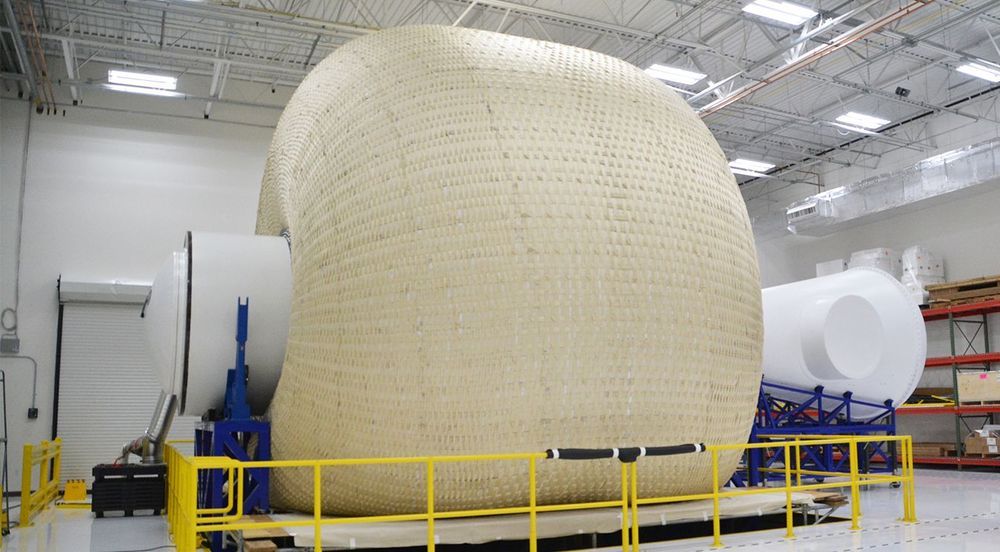Most of the spacecraft in science fiction are ridiculously spacious, but real life is much less luxurious. The International Space Station (ISS) has just 388 cubic meters of habitable space, and future deep-space assignments could have astronauts serving much longer tours of duty. NASA has partnered with Sierra Nevada Corporation to explore ways to make spacecraft a bit less cramped, and the company has now completed a prototype inflatable habitat module with almost as much living space as the entire ISS.
NASA originally funded the NextSTEP-2 program to develop technologies for long-term missions like the Lunar Gateway station and a journey to Mars. The current plan is to make the Lunar Gateway a smaller modular station that will initially have just a small life support area and docking for lunar landers. The inflatable habitat shown off at Johnson Space Center this week could eventually add a lot more living areas to the Gateway and other missions.
This isn’t NASA’s first look at inflatable habitats. The agency partnered with Bigelow Aerospace to deploy a small inflatable prototype module to the ISS called the Bigelow Expandable Activity Module (BEAM). The 16 cubic meter volume of BEAM is a far cry from the Sierra Nevada mockup, though.
